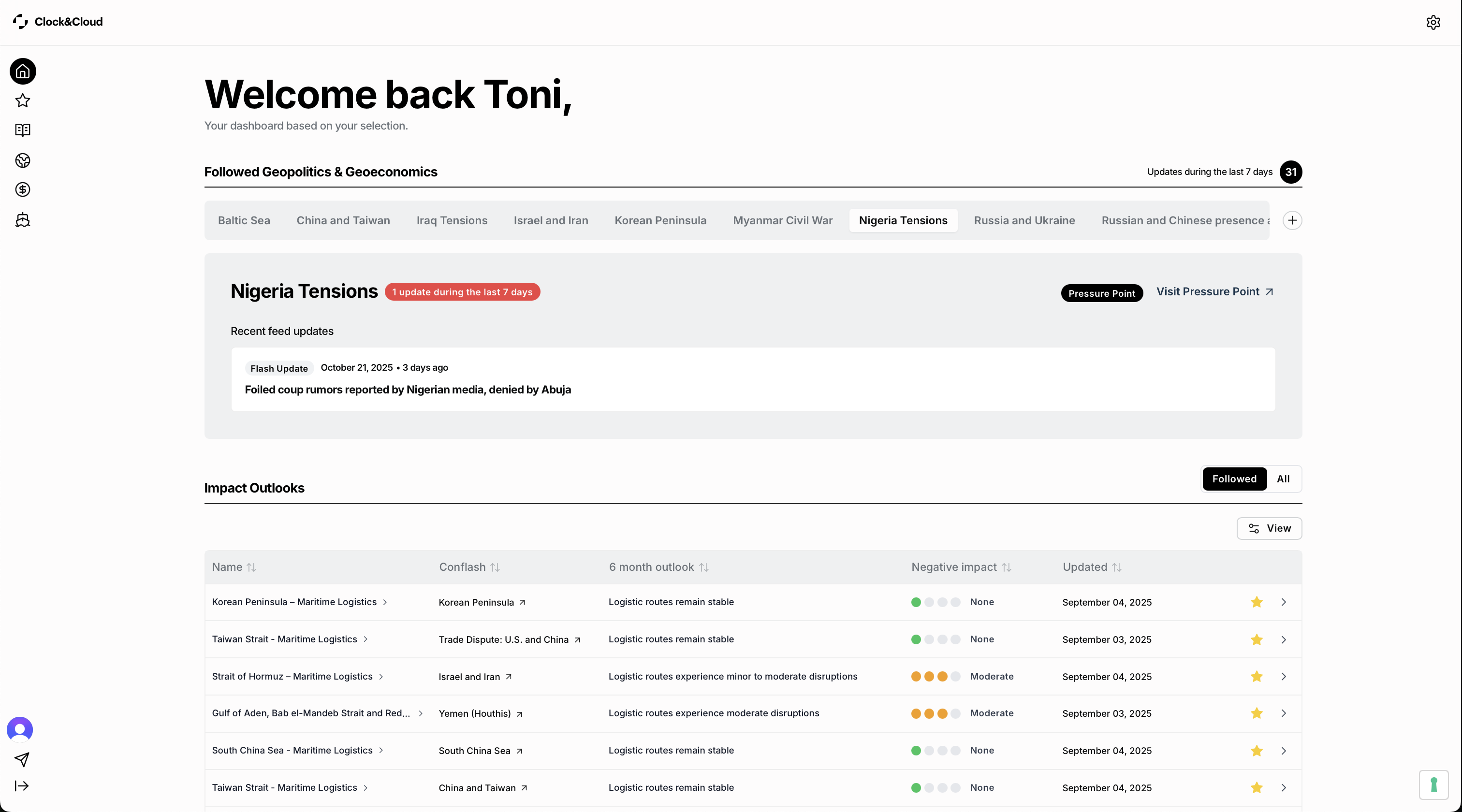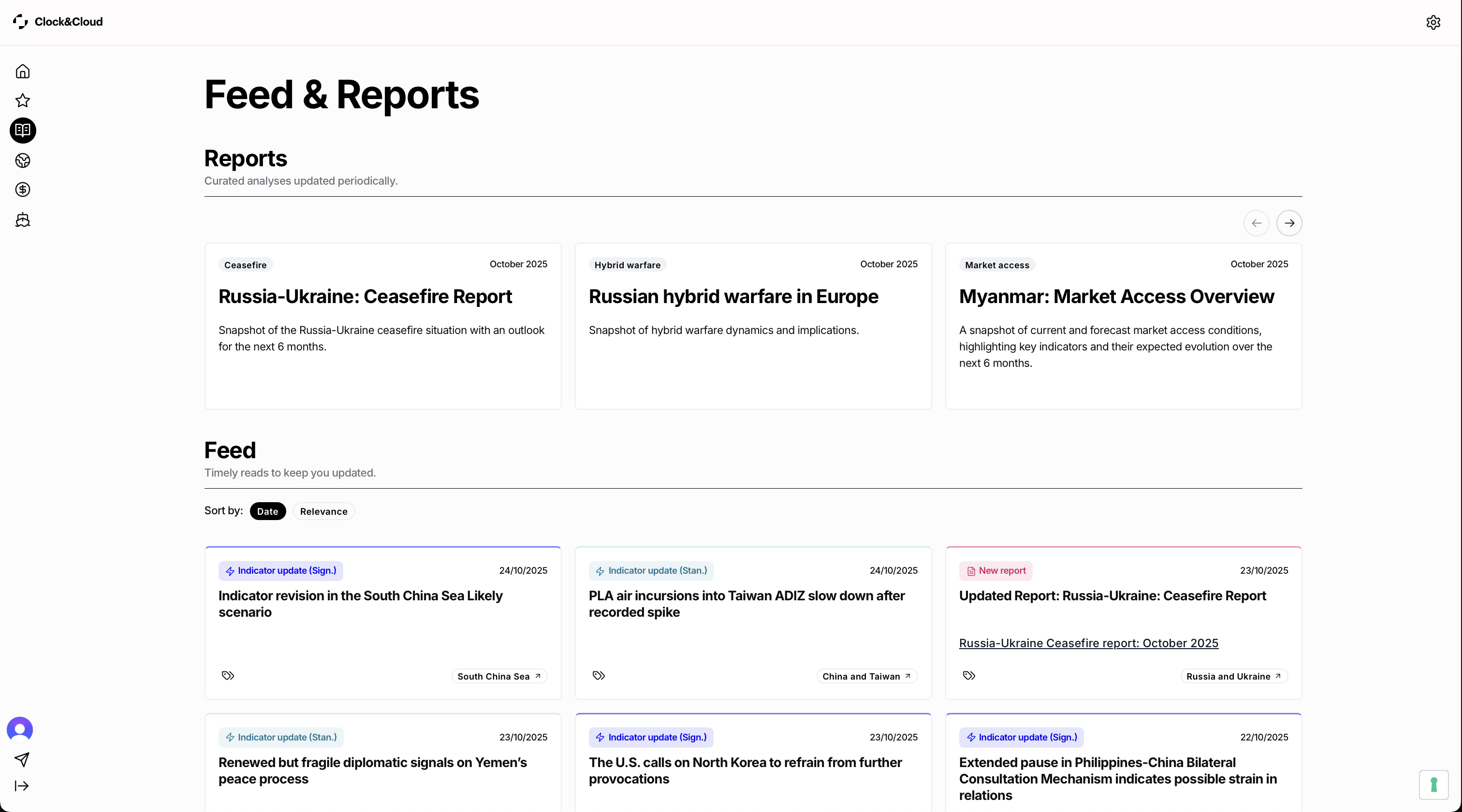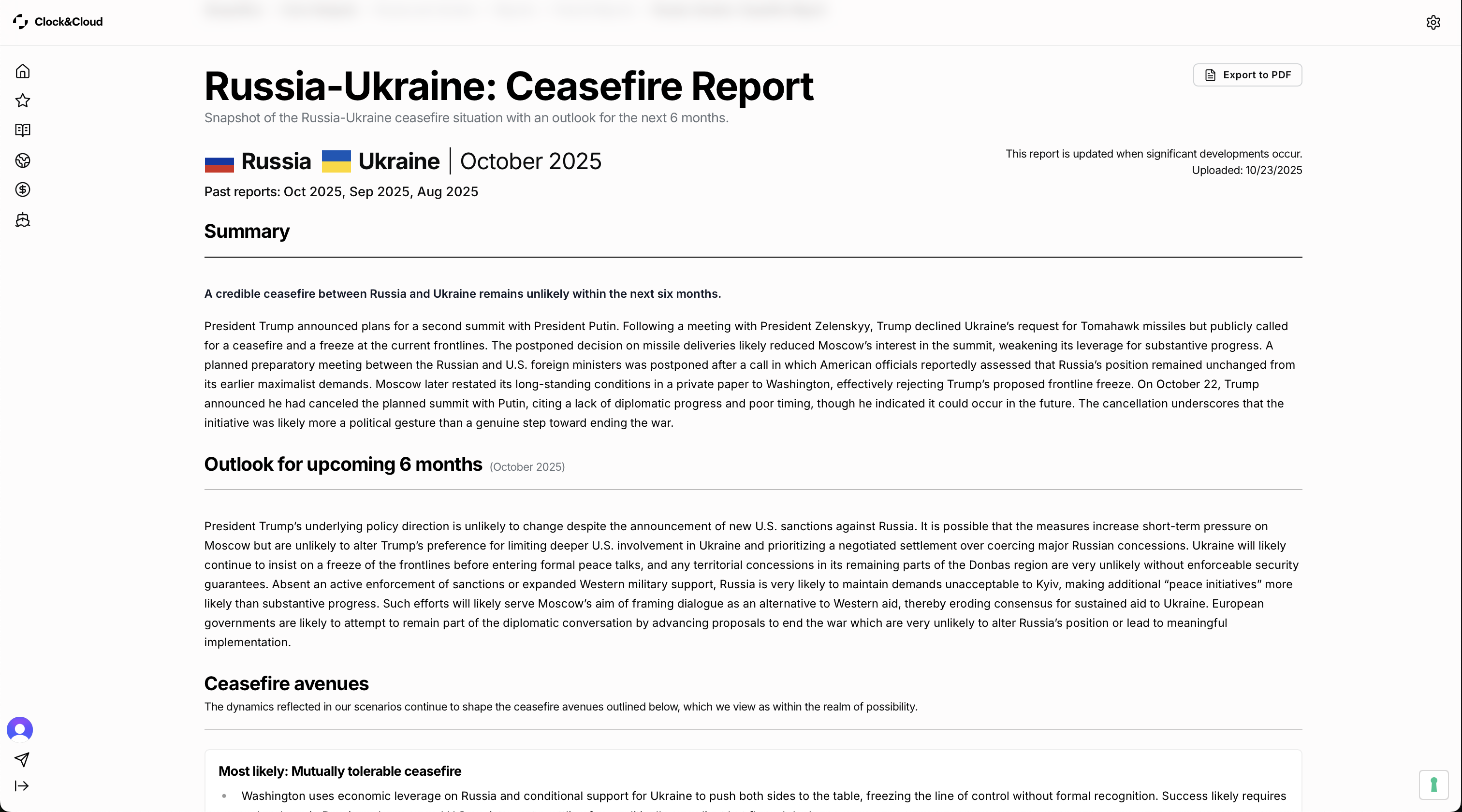What should we take into account with the situation in?
Does your board have a clear, unified picture of the company's geopolitical exposure?
Are your force majeure clauses robust enough to handle ambiguous "gray zone" conflicts?
Is your intelligence function seen as a strategic partner or just a provider of reports?
Does your procurement team understand the geopolitical risks embedded several tiers down your supply chain?
Does your supply chain team see the same geopolitical risks as your strategy team?
How quickly can you translate a sudden geopolitical event into its specific impact on your Q4 earnings forecast?
Is your team spending more time reporting on what just happened than preparing for what might happen next?
When your intelligence team flags a future geopolitical risk, is there a clear process for integrating it into operational planning?
How confident are you that your current geopolitical monitoring isn't just reacting to yesterday's headlines?
Can your Head of Sourcing easily see how tensions in the South China Sea might impact their component availability in six months?
Is your leadership team consistently asking "What's next?" or are they primarily focused on "What just happened?"
Do different departments in your company operate with conflicting assumptions about the stability of a key market?
How much time does your team waste manually connecting geopolitical analysis to specific business functions?
Is your company treating geopolitical risk as a continuous reality or an annual reporting exercise?
Does your market entry strategy fully account for the possibility of sudden political shifts?
Can you clearly articulate how your company distinguishes between geopolitical noise and genuine signals of change?
When was the last time a proactive geopolitical insight led to a concrete change in your business strategy?
Does your procurement team understand the geopolitical risks embedded several tiers down your supply chain?













